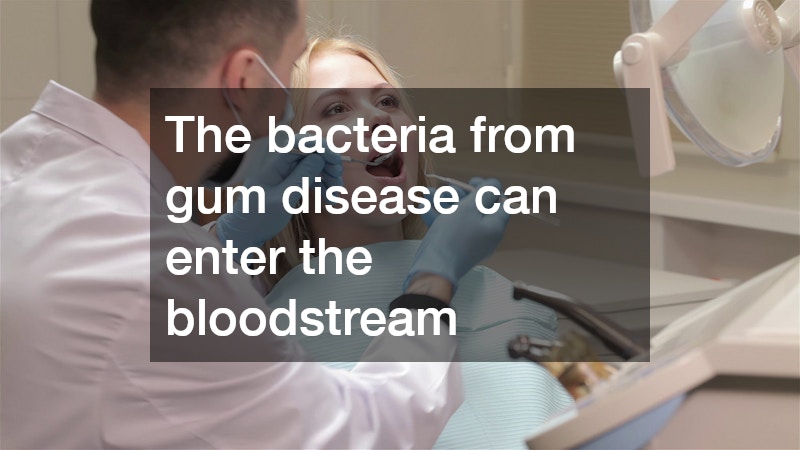Dental exams are not just about checking for cavities or ensuring that your teeth are clean; they represent a critical intersection between oral health and overall physical health. Regular dental visits provide valuable insights into a person’s well-being that extend far beyond the mouth.
Dentists perform a thorough evaluation of the oral cavity, which can reveal significant health indicators. For instance, the presence of particular oral health issues, such as gum disease or tooth decay, can point to potential systemic problems.
The link between dental health and general health is increasingly being recognized in the medical community; research suggests that oral health can significantly affect, and be affected by, other health issues.
How Can Oral Health Impact Overall Health?
The mouth serves as a gateway to the body, and maintaining oral health can greatly influence overall well-being. Poor oral hygiene can lead to a range of problems, including gum disease, which has been linked to various systemic health issues. Conditions such as diabetes can complicate dental problems, while poor oral health can exacerbate existing health concerns, creating a vicious cycle that is difficult to break.
Studies have indicated that individuals with periodontal disease are at a higher risk of heart disease, as bacteria from infected gums can enter the bloodstream, potentially leading to inflammation. The inflammation triggered in response to oral health issues can affect other bodily systems, demonstrating how one aspect of health can directly influence another. This underscores the importance of taking oral health seriously as part of a comprehensive approach to overall health.
Many chronic diseases manifest with early signs that can be detected during a dental exam. Dental professionals are trained to recognize these signs, making it critical for patients to attend regular appointments. By understanding the implications of oral health on systemic conditions, individuals can be better equipped to engage in preventive measures that benefit their overall health.
What Diseases Can Be Detected During a Dental Exam?
During a routine dental exam, dentists can identify several systemic issues that may not be apparent during a general health check-up. Conditions like diabetes often have oral manifestations, such as dry mouth or an increase in gum disease. Observations made during examinations can prompt further testing and diagnosis, making dental visits a valuable tool in managing health.
Cardiovascular disease is another serious condition that can be linked to oral health. The bacteria from gum disease can enter the bloodstream, potentially leading to inflammation of the heart’s arteries. Regular dental check-ups allow for the detection of early signs, which can encourage patients to seek further medical advice or intervention. This highlights the necessity of seeing a dentist as a routine part of maintaining one’s overall health.
Cancer screenings can also be a part of dental exams, particularly when abnormalities are detected in the oral cavity. Lesions or other unusual findings may signal the need for further investigation, potentially catching cancers at earlier, more treatable stages. Such findings reinforce the importance of treating dental visits as not just peripheral visits but as integral components of a comprehensive health strategy, underscoring their role in elevating the standard of care.
What Are the Warning Signs of Oral Cancer?
Dentists are trained to recognize potential warning signs of oral cancer during routine exams. This includes looking for abnormalities such as sores, lumps, or discolored patches in the mouth or on the lips, which may indicate the early stages of malignancy. Identifying such signs early can lead to prompt diagnosis and treatment, significantly improving the prognosis for patients.
Another critical warning sign is difficulty swallowing or chewing, which can indicate that there are underlying health issues that need to be addressed. Persistent pain in the oral cavity that doesn’t respond to standard medications is another red flag. By being aware of these symptoms and communicating them to your dentist during visits, you increase the chances of early discovery and treatment.
Regular dental exams are key to spotting early signs of oral cancer. Dentists often include screenings as part of routine checkups, making it easier to catch issues early. Staying consistent with dental visits helps patients take a proactive approach to both oral and overall health.
How Often Should You Get a Dental Exam?
The American Dental Association recommends that individuals visit the dentist every six months; however, this may vary depending on individual health circumstances. Regular visits can help prevent the progression of oral diseases and allow for the early detection of potential systemic health issues. Each person’s dental hygiene and existing oral health conditions may influence the frequency of visits, prompting the need for personalized schedules.
Those with pre-existing health conditions, such as diabetes or heart disease, may require more frequent check-ups to monitor changes and manage their overall health effectively. It is crucial to consult with a dental professional who can provide personalized advice tailored to your specific needs.
In maintaining a proactive approach to both oral and overall health, understanding the importance of routine exams cannot be overstated. Regular appointments can lead to timely interventions and necessary lifestyle modifications that ultimately benefit your long-term health. Emphasizing consistency in dental care lays the foundation for better health outcomes, reinforcing the adage that prevention is better than a cure.
Dental exams are essential not just for maintaining oral hygiene but for understanding and managing overall health. They provide critical insights into systemic diseases that might otherwise go unnoticed.
Specific diseases, such as diabetes, heart disease, and cancer, can be screened for and monitored during these routine appointments. By recognizing the early signs and symptoms of these conditions, healthcare providers can work collaboratively with patients to ensure effective management strategies. The role of the dentist extends beyond the mouth, serving as an essential part of a patient’s healthcare team.

